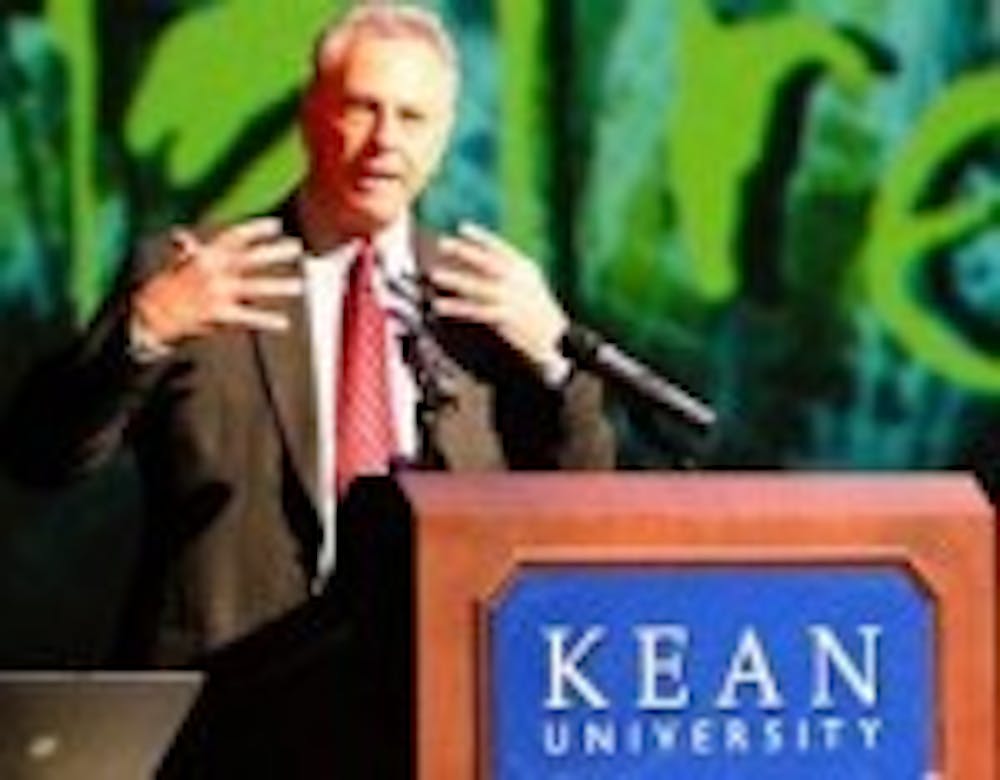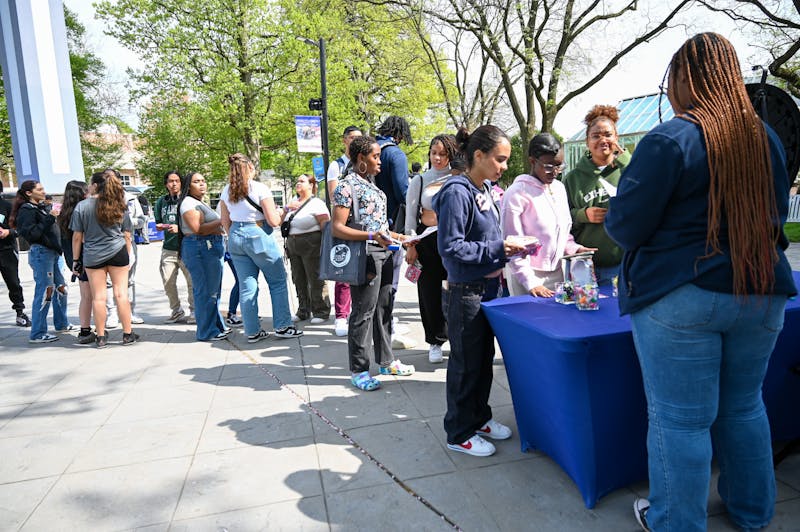Known for the more international endeavor to preserve the Universal Declaration of Human Rights created by the United Nations, the Human Rights Institution of Kean University brought the focus home and centered its recent strive on a domestic concern. Combating Hatred, the third annual conference held by the institution, called to action the effort of the individual to counter hate group support and growing threat. A reoccurring theme, and perhaps the most profound of the conference, was the impact that even the unknowing person contributes to hate crimes. On the morning of January 29, 2010, with opening remarks and welcome from Dr. Hank Kaplowitz, Special Assistant to the President for the Human Rights Institute at Kean University, and Dr. Mark Lender, Interim Vice President for Academic Affairs of Kean University, respectively, Wilkins Theater filled with anticipation from an awaiting, altruistic audience.The keynote speaker of the conference, Morris Dees, marked his position solidly in the campaign for human rights overtime by tackling hate organizations as large in membership number as the Ku Klux Klan. Lawsuits towards the infamous KKK resulted in their bankruptcy. This milestone for eliminating hate organizations is just one of the many planted by the thirty-plus years initiative of the Southern Poverty Law Center, founded by Dees. Dees opened his address with the support of powerful words: "Dr. [Martin Luther] King, Jr. laid claim to a destiny that his people had been denied".
During his speech, Dees called attention to the unfortunate journey of Vietnam refugees who attempted to build stable lives as fisherman in the south of the United States. White fisherman, affected by the presence of these workers looked to KKK members to drive the "competition" away by any means necessary. Though indirectly involved in the hostile and inhumane acts that followed the plea, those American workers directly impacted and supported the hate generated. It is the blind eye, Dees noted, that people often turn towards hatred that sparks the fire set on someone else's doorstep. Connecting the present effort that shapes what is written, Dees repeated echoed the words, "We have front row seats to history". Again recalling the domestic aspect of this conference, Dees continues by calling to action the expected responsibility of each individual to grow that compassion which starts within. He powerfully states, "Human rights begin close to home, within our communities, our schools, and our workplaces."
Continuing that notion of the domestic presence of hate, Mark Weitzman, Director of Government Affairs and of the Task Force Against Hate and Terror for the Simon Wiesenthal Center of the United Nations in New York, succeeded Dees's speech with a focus on "internet hate". Weitzman raised the issue of easily accessible internet groups that promote hate and actively seek new minds to influence. Weitzman called attention to the hundreds of hate websites that seek to catch online, unexpected youths as forms of creating new bridges of hate. The goals of these sites are to gain support by networking outward, while also utilizing social networks to find victims.
After an intermission and lunch break, the conference resumed with a concluding presentation by Detective David L. D'Amico, the sole member of the Bias Crimes Unit in Monmouth County. The twenty year veteran of law enforcement focused his presentation on eliminating hate where it is first started. D'Amico noted that everyone is prejudice by the fact that everyone casts initial perceptions on those they first meet. While it is made certain that these pre-judgments do not warrant one to be racist, sexist, or even homophobic, they can be ground for the presence of ignorance. Ignorance, says D'Amico, is "the foundation for hate".
D'Amico also raised the point that hate is not a product of nature, but is in fact harbored and grown by nurture. In short, hate is taught. There is a parental influence in the growth of hate; and the adoption of hateful language that is conditioned in us only continues the landscape for a hateful and damaging community. Carrying forth phrases like "that is so gay" from cartoon programs to places like the classroom are the seeds in which grow hate, notes D'Amico. He closed with the acknowledgment that all individuals must take responsibility for what actions they partake in that generate or build upon existing hate.
Recognizing The Presence Of Hate
Human Rights Institute examines a domestic concern






